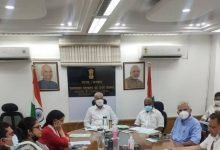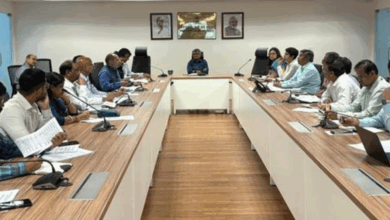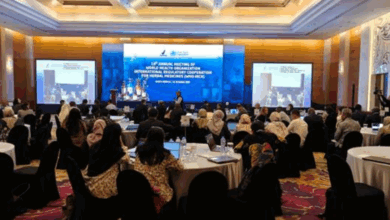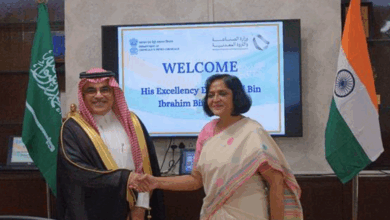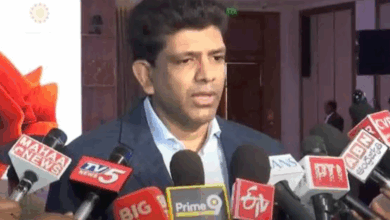Rashtriya Gokul Mission and Livestock Development in Jharkhand
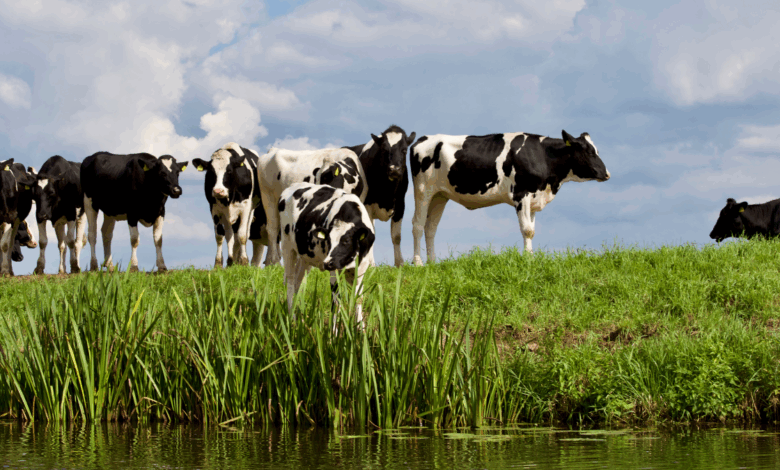
In order to complement and supplement the efforts of the State and Union Territories for conservation and promotion of indigenous breeds, the Government of India is implementing Rashtriya Gokul Mission (RGM) since December 2014 for the development and conservation of indigenous breeds, genetic upgradation of the bovine population and enhancement of milk production and productivity across the country, including Jharkhand. The benefit of the scheme is accruing to all the dairy farmers in the country, including farmers of Jharkhand State.
Under the Rashtriya Gokul Mission following steps have been taken for the conservation and promotion of indigenous breeds, including the expansion of Artificial Insemination services across the country, including Jharkhand:
- Nationwide Artificial Insemination Programme: The programme aims at enhancing AI coverage and delivering quality Artificial Insemination Services (AI) at farmers’ doorsteps with semen of high genetic merit bulls, including indigenous breeds. The progress of the programme has been uploaded online on Bharat Pashudhan/ NDLM (National Digital Livestock Mission) on real real-time basis, and transparency of the artificial insemination and farmer benefits from the programme has been ensured. As of date, in Jharkhand, 26.87 lakh animals have been covered, 36.06 lakh Artificial Insemination performed, and 18.20 lakh farmers benefited under the programme.
- Sex Sorted Semen: Sex sorted semen production has been introduced in the country for the production of only female calves, upto 90% accuracy. Use of sex sorted semen is game game-changer, not only enhancing milk production but also limiting the stray cattle population. For the first time in India, facilities established under the Rashtriya Gokul Mission have successfully produced sex-sorted semen of indigenous cattle breeds. The benefit of the technology is accruing to all dairy farmers, including farmers of Jharkhand State.
Accelerated Breed Improvement Programme using sex sorted semen: Sex sorted semen of indigenous breeds is promoted under the programme. Under the component incentive upto 50% of the cost of sex sorted semen on assured pregnancy is made available to farmers. As on date, in Jharkhand, a total of 5,635 artificial insemination have been performed using sex sorted semen.
- Training and equipping community resource persons/ Multi-Purpose Artificial Insemination Technicians in Rural India (MAITRI’s): Under the scheme, community resource persons/ MAITRIs are trained and equipped to deliver quality Artificial Insemination services at farmers’ doorsteps. During the last 4 years, 1,068 MAITRIs have been trained and equipped in Jharkhand.
- Progeny testing and Pedigree selection programme: This programme aims to produce high genetic merit bulls, including bulls of indigenous breeds. Progeny testing is implemented for Gir, Sahiwal breeds of cattle, and Murrah, Mehsana breeds of buffaloes. Under the Pedigree selection programme, Rathi, Tharparkar, Hariana, Kankrej breeds of cattle and Jaffarabadi, Nili Ravi, Pandharpuri and Banni breeds of buffalo are covered. Disease-free free high genetic merit bulls of indigenous breeds produced under the programme are made available to semen stations across the country. The semen doses produced from these High Genetic Merit Bulls are contributing to quality Artificial Insemination services in all states, including Jharkhand.
- Strengthening of semen stations to achieve qualitative and quantitative improvement in semen production, including semen of indigenous breeds. The high genetic merit, disease-free semen doses produced in the semen stations are available for all states, including Jharkhand.
- Under the scheme, fertility camps, milk yield competition, calf rallies, farmers training programme, seminars and workshops, conclaves, etc, to create awareness among the farmers about the importance of indigenous bovine breeds have been organised in all states, including Jharkhand.
- Under the component of establishment of the Breed Multiplication Farm (BMF) Department has sanctioned 132 BMF have been sanctioned. The component has been discontinued under the revised Rashtriya Gokul Mission. As no proposal was received from the State of Jharkhand, a breed multiplication farm has not been established in the State.
- Under the scheme, funds have been released for setting up 16 “Gokul Grams” in the country with the aim of conservation and development of indigenous bovine breeds in a scientific and holistic manner. The component is discontinued under the revised and realigned Rashtriya Gokul Mission from 2021-22 to 2025-26. As no proposal was received from the State of Jharkhand, Gokul Gram has not been established in the State.
Livestock Health Disease Control Programme (LHDCP) is being implemented by the Department of Animal Husbandry and Dairying (DAHD) in all states/UTs. There are three components namely: (i) National Animal Disease Control Programme (NADCP) for vaccination against Foot and Mouth Disease (FMD) and Brucellosis; (ii) Livestock Health and Disease Control with sub – component namely (a) Critical Animal Disease Control Programme (CADCP) for vaccination against Classical Swine Fever (CSF) and Peste des Petits Ruminants (PPR); (b) Establishment & Strengthening of Veterinary Hospital and Dispensaries – Mobile Veterinary Units (ESVHD-MVU) and (c) Assistance to States for Control Animal Disease (ASCAD) for vaccination against state prioritized disease like Lumpy Skin Disease (LSD), Rabies etc, strengthening of Laboratories, Training and culling compensation etc. (iii) a new component Pashu Aushadhi through PM- Kisan Samriddhi Kendra and Cooperative Societies has been added to the LHDCP scheme for sale of generic veterinary medicines. During 2025, till July 24.23 lakh FMD, 57.94 lakh LSD, 15,580 Brucellosis, 4113 CSF and 52370 PPR vaccinations have been performed under the scheme in Jharkhand State.
Under the LHDCP scheme Government of India is supporting the establishment of Mobile Veterinary Units (MVUs) for the delivery of veterinary healthcare services, including disease diagnosis, treatment, vaccination, minor surgical interventions, audio-visual aids and extension services at farmers’ doorstep. So far, in Jharkhand State, 236 MVUs are operational and 66,525 farmers have benefited, and 1,01,907 animals have been treated.
This information was given by Union Minister of State, Ministry of Fisheries, Animal Husbandry and Dairying, Prof. S.P. Singh Baghel, in a written reply in Rajya Sabha on 20th August, 2025.”
Disclaimer: This is an official press release by Pib.

